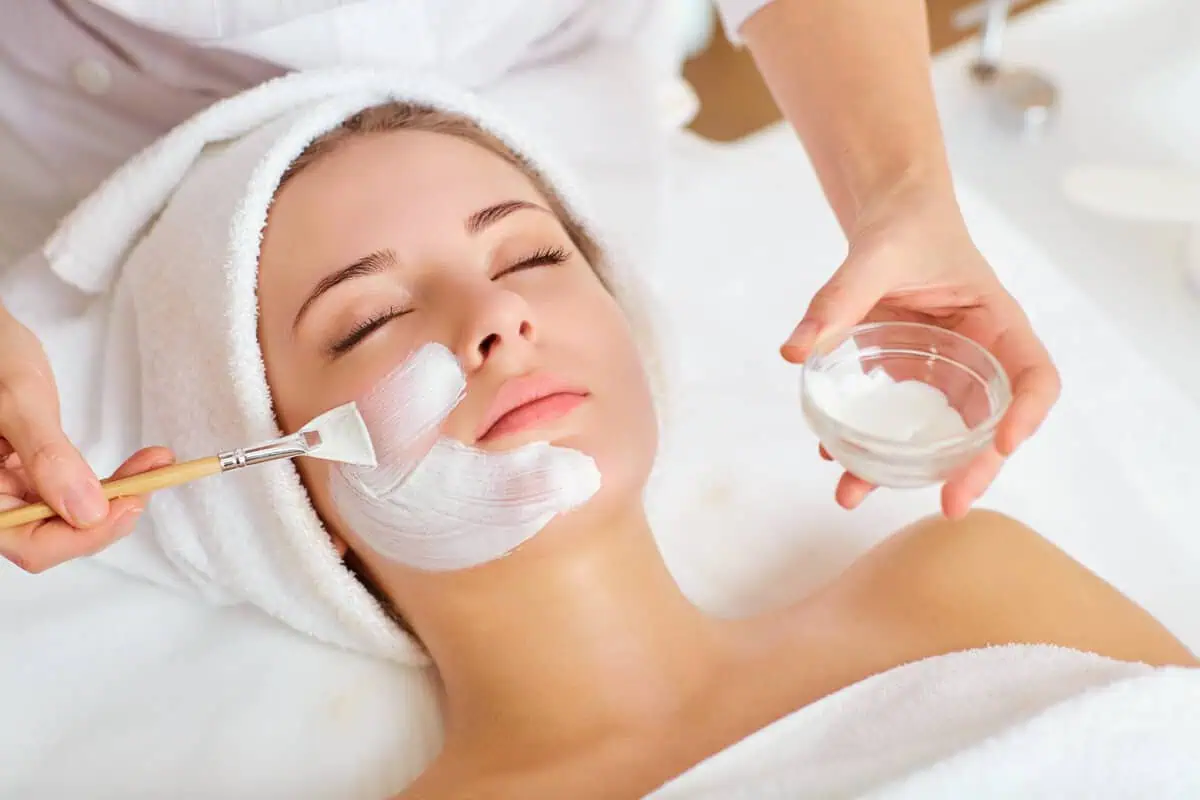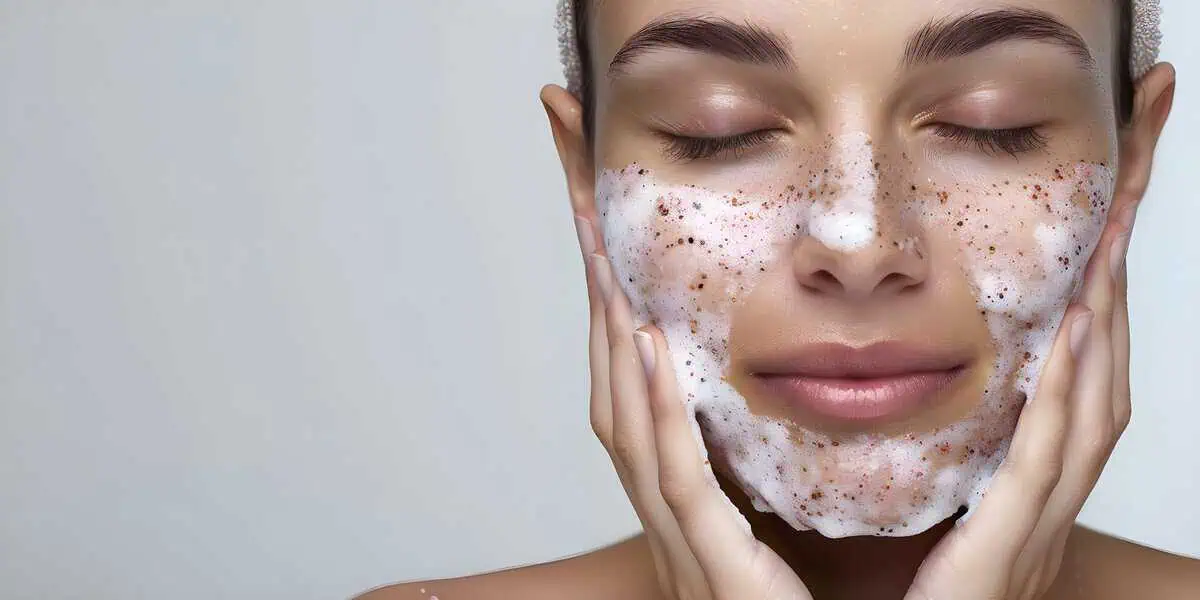Introduction
Exfoliation, a vital component of skincare routines, is often credited as the secret to attaining smooth, glowing, and healthy skin. This essential process, which involves removing dead skin cells through physical or chemical methods, is frequently overlooked despite its importance. When you skip regular exfoliation, your skin can suffer in numerous ways, and this blog will explore the effects and damages that can occur when you don’t exfoliate regularly.
The Role of Exfoliation in Skincare
The exfoliation process can be achieved through physical or chemical methods, each offering unique benefits. Let’s explore the crucial role exfoliation plays in skincare and why it should not be overlooked.
- Promotes Skin Cell Turnover: Exfoliation accelerates the natural process of skin cell turnover, where old, dead cells are replaced by new, healthy ones. This process slows down as we age, leading to a buildup of dead skin cells that can cause dullness and uneven texture.
- Unclogs Pores: Regular exfoliation aids in clearing the pores of debris, oil, and other contaminants. This is particularly beneficial for those prone to acne, blackheads, and whiteheads.
- Enhances Absorption of Skincare Products: When dead skin cells are removed, skincare products can penetrate more deeply into the skin. This ensures that active ingredients, such as antioxidants, retinoids, and peptides, are more effective.
- Improves Skin Texture: Texture Refinement: Exfoliation smoothes the skin’s surface, making wrinkles, fine lines, and rough spots less noticeable. This results in a softer, more even skin texture.
- Evens Skin Tone: Exfoliation can aid in the fading of dark spots, hyperpigmentation, and discoloration by eliminating dead skin cells. This leads to a more even and radiant skin tone.
- Prevents Ingrown Hairs: Exfoliation is particularly beneficial for those who shave or wax regularly. By eliminating dead skin cells that may trap hair beneath the skin, it helps to prevent ingrown hairs.
Consequences of Skipping Regular Exfoliation
One essential step in keeping skin bright and healthy is exfoliation. When neglected, several adverse effects can impact the overall health and appearance of your skin. Here are the main consequences of skipping regular exfoliation:
- Dull and Uneven Skin Tone: If you do not regularly exfoliate, dead skin cells will accumulate on the outermost layers of your skin, giving you a dull, lifeless appearance. This buildup can also lead to an uneven skin tone, making your skin look tired and aged.
- Increased Breakouts: When dead skin cells mix with excess oil and bacteria, it can clog your pores, leading to acne breakouts. Regular exfoliation helps to keep your pores clear, reducing the likelihood of developing blackheads, whiteheads, and pimples.
- Dry and Flaky Skin: A barrier preventing moisture from reaching the skin may be created by the buildup of dead skin cells. This can result in dry, flaky patches that can be both uncomfortable and unattractive. Exfoliating helps to maintain the skin’s natural moisture balance.
- Rough Skin Texture: Your skin may feel uneven and scratchy as a result of dead skin cells accumulating over time. This texture can be particularly noticeable on areas like the elbows, knees, and face. Exfoliation smooths the skin, improving its overall feel and appearance.
- Premature Aging: Dead skin cells have the ability to form a barrier that reduces the efficacy of anti-aging products like moisturizers and serums. Frequent exfoliation encourages the creation of collagen, which preserves skin suppleness and lessens aging indications.
- Hyperpigmentation and Dark Spots: Without regular exfoliation, hyperpigmentation and dark spots can become more pronounced. Dead skin cells can trap excess melanin, leading to stubborn dark spots that are difficult to treat. Exfoliation helps to fade these spots over time by encouraging cell turnover.
- Reduced Effectiveness of Skincare Products: When dead skin cells accumulate, they can form a barrier that prevents skincare products from penetrating the skin. This means that your expensive serums, moisturizers, and treatments may be less effective than they are. Exfoliation ensures that your skin can fully absorb and benefit from your skincare routine.
How to Exfoliate Properly
Exfoliation is vital to any skincare routine, but it’s important to do it correctly to avoid damaging your skin. Here’s a comprehensive guide on how to exfoliate properly, ensuring you reap the benefits without causing irritation or harm.
Types of Exfoliation
- Physical Exfoliation: This involves using scrubs or tools to physically remove dead skin cells.
- Chemical Exfoliation: This uses acids or enzymes to dissolve dead skin cells.
Choosing the Right Exfoliant
For Physical Exfoliation:
- Scrubs: Choose a scrub with fine, gentle particles. Avoid products with large, rough particles that can cause microtears in the skin.
- Tools: Use soft brushes, exfoliating gloves, or sponges designed for gentle exfoliation.
For Chemical Exfoliation:
- AHAs (Alpha-Hydroxy Acids): Good for dry or sun-damaged skin. Examples include glycolic acid and lactic acid.
- BHAs (Beta-Hydroxy Acids): Ideal for oily and acne-prone skin. Salicylic acid is a common BHA.
- Enzymes: Derived from fruits, such as pineapple or papaya, and are appropriate for skin that is sensitive.
Frequency of Exfoliation
Skin Type Consideration:
- Oily or Acne-Prone Skin: Oily or acne-prone skin benefits from 2-3 times weekly
- Dry or Sensitive Skin: Dry or sensitive skin should limit to once or twice a week.
- Normal or Combination Skin: Normal or combination skin can aim for 2-3 times weekly, adjusting based on how the skin reacts.
Steps to Exfoliate Properly
Cleanse Your Skin:
- Start Fresh: Use a mild cleanser to wash your face in order to get rid of oil, debris, and makeup.
- Pat Dry: Using a gentle cloth, pat dry your skin.
Apply the Exfoliant:
- Physical Exfoliants: Take a small amount of scrub and apply it to your damp skin. Use gentle, circular motions with your fingertips. Avoid applying too much pressure.
- Chemical Exfoliants: Pay attention to the product’s instructions. Usually, you’ll apply a thin layer to clean, dry skin. Leave it on for the recommended time, then rinse off.
Be Gentle:
- Physical Exfoliants: Avoid the delicate eye area and be especially gentle on sensitive areas of your face.
- Chemical Exfoliants: Do not use on broken or irritated skin. If you experience a stinging or burning sensation, rinse off immediately.
Rinse Thoroughly:
- Physical Exfoliants: Rinse your face with lukewarm water until all the product is removed.
- Chemical Exfoliants: Rinse as directed, ensuring all residues are washed away.
Moisturize:
- Hydrate: After exfoliating, your skin may feel more sensitive. To calm and moisturize your skin, use a moisturizer. Look for skincare products that include soothing ingredients such as hyaluronic acid, aloe vera, or chamomile.
Protect Your Skin:
- Sunscreen: Your skin may be more vulnerable to sun damage after exfoliation. Even if you plan on spending the day indoors, wear a broad-spectrum sunscreen with at least SPF 30 during the day.
Tips for Effective and Safe Exfoliation
- Know Your Skin Type: Tailor your exfoliation routine to your skin type and needs. For example, sensitive skin requires gentler products and less frequent exfoliation.
- Avoid Over-Exfoliating: Over-exfoliating can damage your skin’s protective barrier, leading to redness, irritation, and breakouts. Stick to the recommended frequency and observe how your skin responds.
- Combine Exfoliation Types: You can alternate between physical and chemical exfoliants for a balanced approach. For instance, use a physical exfoliant once a week and a chemical exfoliant another time.
- Pay Attention to Ingredients: Some ingredients, like retinol and certain acne treatments, can make your skin more sensitive. Be cautious when combining them with exfoliants.
- Patch Test New Products: Test new exfoliants on a small area of your skin before using them on your entire face to ensure you don’t have an adverse reaction.
- Adjust with Seasons: Your skin’s needs can change with the seasons. In winter, you might need gentler exfoliation due to dryness, while in summer, you may need more frequent exfoliation due to increased oil production.
Conclusion
Regular exfoliation is essential for a healthy skincare routine, preventing dullness, breakouts, dryness, rough texture, premature aging, and hyperpigmentation, ensuring a brighter, smoother, and more youthful complexion. At Peach Physique Spa in Las Vegas, NV, we pride ourselves on offering premier exfoliation treatments, including the luxurious BioRePeel Gold and our Custom Transdermal Nutrition Pre-Laser Exfoliation, designed to rejuvenate your skin and enhance your natural radiance. Unlock your skin’s true radiance and youthfulness with regular, proper exfoliation that banishes dead cells, unclogs pores, and maximizes the effectiveness of your skincare products.






